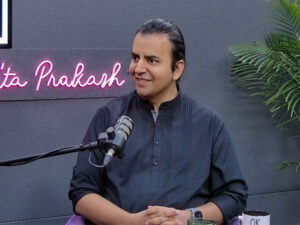India could become a global hub for AI-related employment: Ola CEO Bhavish Aggarwal

New Delhi [India], July 7 (ANI): Ola CEO Bhavish Aggarwal envisions a future where India could become a global hub for AI-related employment, leveraging its vast pool of IT professionals to take on more significant roles in the global market.
In an interview with ANI, Aggarwal said, “In India, there are tens of millions of IT services professionals, young people and all of that. Now today they are doing some work for global clients. Their work can be 10x more productive. That means not to get jobs that will be one tenth. That means that we can bring 10x more jobs to India.”
When asked if AI would create more jobs than it would eliminate, Aggarwal offered a nuanced perspective. He said, “To quantify is difficult, but I would say AI will create new jobs, AI will take away jobs also.”
The productivity boost is expected to lead to job displacement in certain areas, but also create new opportunities in others.
He said, “Some jobs will go and productivity will be enhanced. So, the way I think of it, right, in a very simple sense, AI is going to create a bunch of new kind of jobs in the future. As a country and as an ecosystem, we have to get half of those jobs built in India.”
He added, “So we have to, we can only do that if we embrace AI. If we become the leaders of embracing AI and because of that, our economy becomes more productive faster and we create the future AI jobs in India for the whole world.”
Aggarwal elaborated on how AI could boost economic productivity by automating routine tasks and enabling individuals to accomplish more in less time.
“Because of AI, economic productivity is going to increase a lot in the whole world. You can get a letter written from this. You save time. That’s economic productivity. Now you can do more work. So there will be disruptions in jobs. And again, I’m going to be factual in my opinion, but based on what I think is facts”, he added.
Aggarwal’s vision for India involves transforming the country into a leading exporter of AI intelligence and technology.
He outlined a comprehensive strategy for achieving this goal, emphasizing the importance of open access to data and the development of a robust infrastructure.
Aggarwal said, “And India, as a country, we have to really become the largest AI, we actually should become a net intelligence export, net AI export.”
How do we do that? By really bringing all of our data into the public domain, by building large open source intelligence, which everybody in India can use, and by building the compute infrastructure, data centers, chips, fabs in India so that we can really build our own supply chain, data, intelligence, make the economy most productive, build the jobs of the future in the AI world here in India for the whole world,” he added.
Aggarwal acknowledged the widespread excitement surrounding AI and its potential to disrupt various sectors.
“There’s a lot of hype about AI. And rightly so, because it’s a major disruption,” he stated.
Emphasizing the need for a strategic approach, he urged all facets of society–business leaders, media, bureaucrats, politicians, and government officials–to contemplate the implications of AI collectively.
Aggarwal said, “And we as a country, and as different elements of civil society, be it businessmen or media or bureaucrats or politicians or government, everybody has to really think strategically about AI. Because while there is a risk, there is also an opportunity.”
Highlighting the transformative potential and challenges posed by artificial intelligence (AI) on the job market, Bhavish Aggarwal said that in the near term, the biggest impact of AI will be on white-collar jobs rather than blue-collar roles.
Aggarwal said, “The biggest impact in the near term, let’s say the next five years, is going to be the white-collar jobs, not the blue-collar jobs. Because AI is in your computer now, right? It’s not in the robot. Right? The robot hasn’t been made yet. The robot will be made in 5-10 years. But now the computer, the desk jobs, the services jobs, they are going to have an impact.”
This highlights a shift where AI’s influence will be felt primarily in sectors involving desk-based and service-oriented tasks, rather than manual labour.
He underscored that while AI presents certain risks, it also offers significant opportunities to enhance economic productivity globally. (ANI)
Disclaimer: This story is auto-generated from a syndicated feed of ANI; only the image & headline may have been reworked by News Services Division of South Asian Correspondent.




